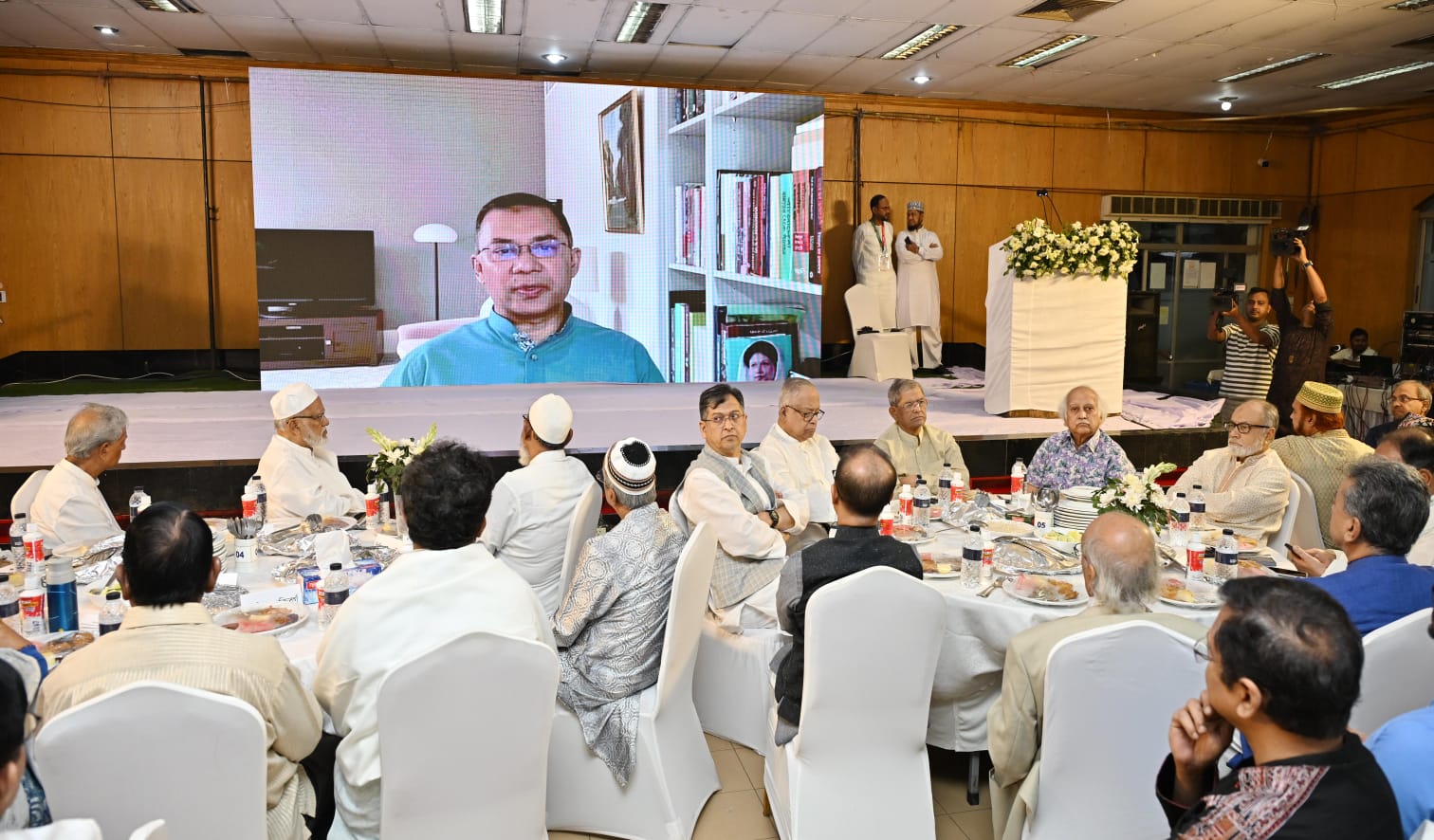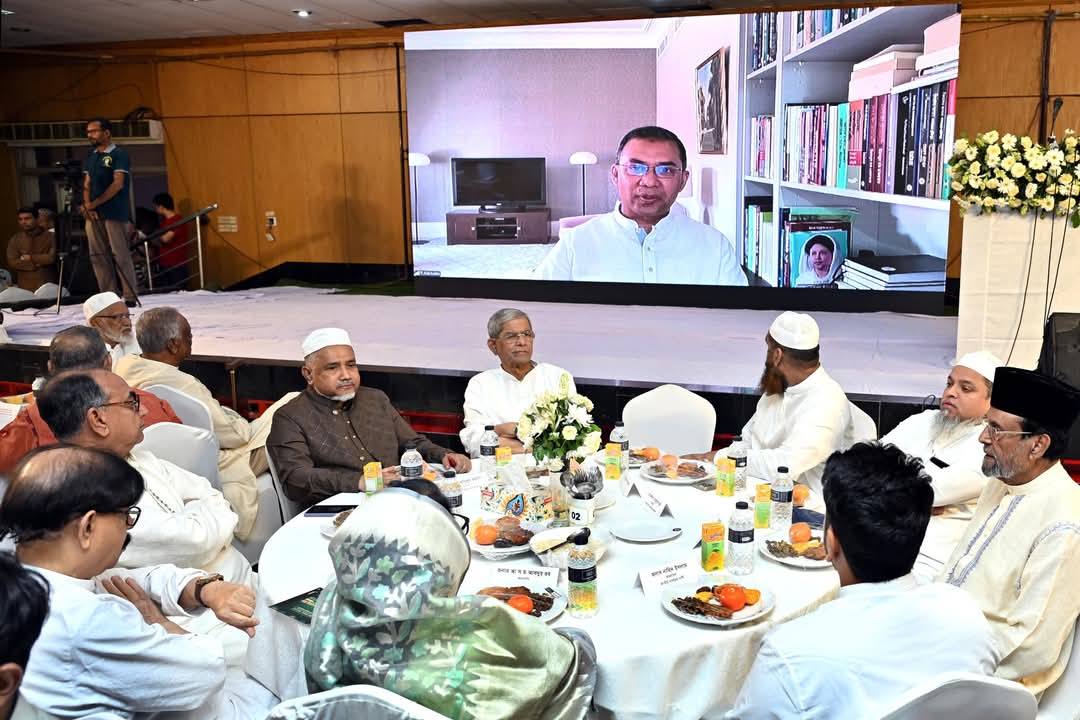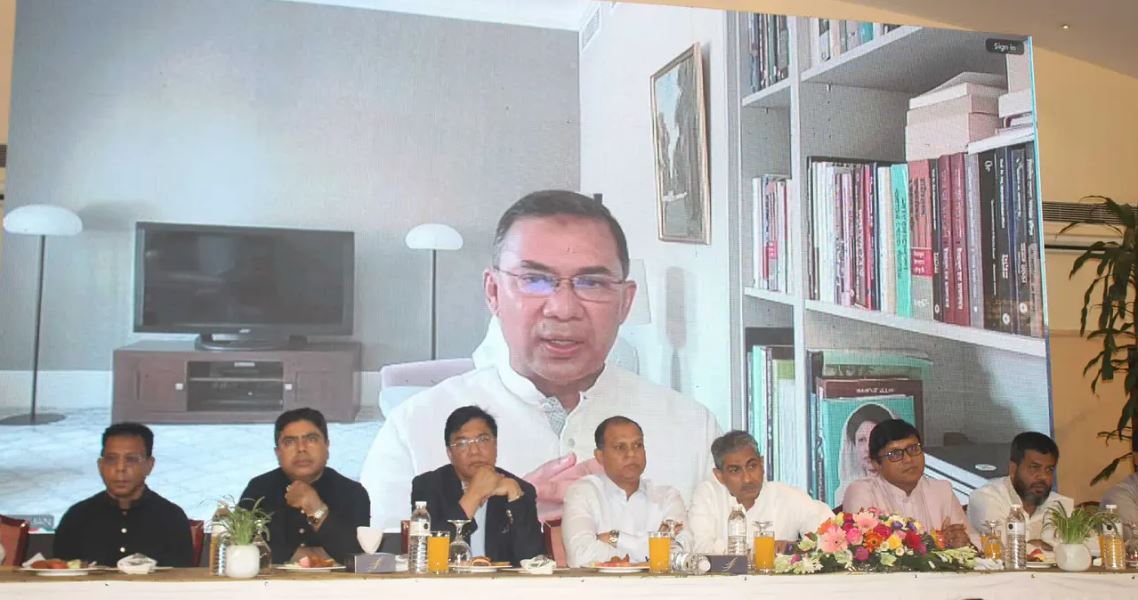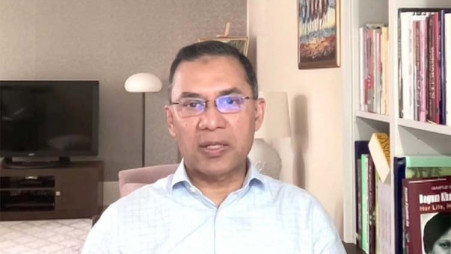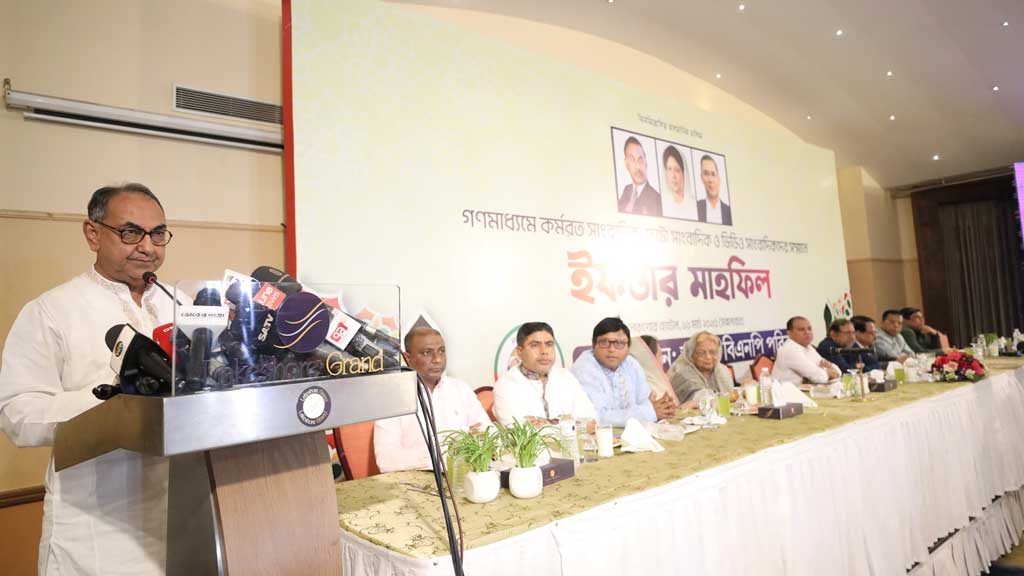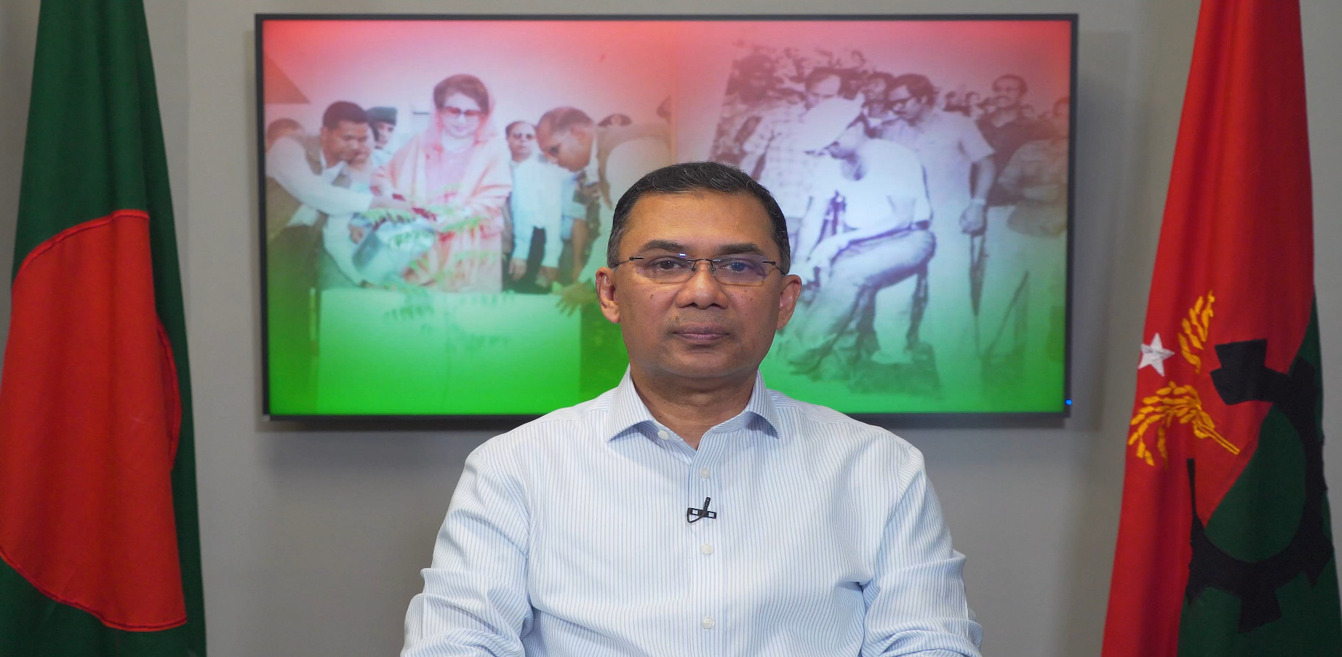
BNP Acting Chairman Tarique Rahman termed Prime Minister Sheikh Hasina as a big obstacle in dealing with the climate impact of Bangladesh.
In a speech addressed to the countrymen on Thursday, he said that intense heatwaves, unbearable loadshedding and severe water shortages across the country have shown and informed the people of the country that Bangladesh has not taken any effective initiative to deal with the negative situation of climate change.
At the beginning of this speech, I would like to mention an incident - many of you must remember, an Awami League leader Muhiuddin Khan Alamgir led by Awami League established Farmers Bank in 2013 under the patronage of corrupt Hasina. In 2015, around 600 crores of Climate Fund was diverted from this bank, one of the safest for looting and money laundering. To date that money has not been returned to the Climate Fund. Why was climate fund money diverted to Muhiuddin Alamgir's bank instead of spending on climate change?
Tarique Rahman said that Bangladesh is one of the most vulnerable countries due to global climate change. So, no matter what we call TAPADAH or DABADAH, global climate change is behind it, but such a situation did not arise suddenly. Vulnerable countries have made various preparations to deal with the negative effects of global climate change. And Bangladesh? Farmers Bank created to siphon climate fund money. After corruption, looting, money laundering, Farmers Bank has changed its name and dissolved into 'Padma'. The bank bearing the name 'Padma' is now merging with Exim Bank again. The name is changing one after the other, but will hundreds of crores of climate funds removed from the Farmers Bank be returned at all?
Stating that the money of the climate fund was not properly utilized, the Acting Chairman of BNP said that thousands of crores of rupees accumulated from local and foreign sources in Climate Change Trust, Bangladesh Climate Change Resilience Fund or Green Climate Fund have been looted by the Awami Looters to deal with the risk of climate change. Climate fund money is a safe haven for Awami looters. There is not a single project in Bangladesh where climate fund money was spent and where there was no looting and corruption. TIB investigated at least 7 projects funded by the Climate Fund. TIB found rifts of corruption in every project. Despite the fact that the climate fund is being looted, the unopposed government has taken virtually no effective action to tackle climate change. A 'meteorological department' equipped with modern techniques and instruments is indispensable to get information about heavy rains, non-rainfalls, droughts, floods, floods, etc. But it is known that currently not a single radar of the meteorological department of the country is working. So what is the development? Whose development? Development for whom?
Tarique Rahman, referring to a report published in the media recently, said that bonsai trees were planted on both sides of the capital's airport road. But the environmentalists said that the bonsai trees that have been planted are not suitable for Dhaka's soil and environment. Still, the Roads and Highways Department planted these trees by importing a lot of money from abroad. Actually saving the environment or planting trees is not the main objective. The main motive is corruption.
He said that along with looting of climate fund, nature and environment destructive activities are going on. Even vote robber Hasina did not hesitate to accept the destructive project 'Sundarban', a world heritage. In the name of development, it seems that the festival of tree cutting is going on in Chittagong. There is no action to prevent mountain cutting, hill encroachment. Recently, the authorities have decided to cut more than four hundred trees in Jahangirnagar University in the name of building construction. Despite knowing the threat of global climate change, in the name of so-called development, trees are cut down, canals are filled, reservoirs are filled, field parks are occupied, and the cities of the country, including the capital Dhaka, have been turned into cities of concrete and garbage.
Tarique Rahman said, the rivers and canals of riverine Bangladesh could have been one of the safest shelters for the people during heatwaves or storms. But due to the exploitation of rivers from the upstream, the rivers of downstream Bangladesh remain waterless almost throughout the year. And on this occasion, the Awami occupying clique is occupying the waterless canals and rivers and filling them up. It is doubtful whether such a river or canal can be found in the country that has been freed from the occupation of the Awami occupying clique. I was looking at a report published in the national media; The report says that there were at least 52 canals in Keraniganj upazila surrounded by Buriganga, Dhaleswari and Kaliganga rivers. Among them, 40 canals are almost extinct due to encroachment and pollution. And 12 canals still survive in some way. If the occupier Hasina is able to hold on to power for a few more days, the existence of these 12 canals may not be found anymore.
According to the statistics of various research organizations, there were at least 1200 rivers in Bangladesh in 1971. Among them, more than 500 rivers have died. In 1974, the death journey of Bangladesh's rivers began due to the construction of a dam at Farakka. River experts say that the rivers are dying one after another due to various reasons including continuous blockage of upstream river water and sediment flow, illegal encroachment of the river, construction of unplanned infrastructure. Due to non-flow of water on one hand, and encroachment on the other, many rivers have almost turned into canals. But the rivers of Bangladesh could play a vital role in dealing with the climate. It is necessary to keep the country's rivers and canals alive for the sake of human survival. It should be the special responsibility of the state to keep the rivers, canals, reservoirs, reservoirs free of encroachment and alive.
Recalling the neglect of Bangladesh's national interests, Tarique Rahman said that the issues like connecting roads, rail links, land port transit, transshipment between the two neighboring countries Bangladesh and India were important for both countries. Bangladesh had an opportunity to get its fair share of water from common rivers including Teesta through dialogue on these issues. But Hasina, who is out of power, has used these issues for her personal and party interests, not in the interest of the country, to garner support for her no-vote government. As a result, the Teesta Agreement or the issue of fair share of water of common rivers is still unresolved. So, it can be safely said that Hasina herself is now the biggest obstacle in dealing with Bangladesh's climate impact.
Highlighting the action plan of BNP founder Ziaur Rahman, he said, to deal with the negative effects of climate change in Bangladesh, we can recall a far-sighted groundbreaking canal digging and tree planting program of the martyred president Ziaur Rahman, the promulgator of Bangladesh's independence. Shaheed Zia started the green revolution in the country by digging canals and planting trees across the country with the slogan 'If the canals are cut, the floods and droughts will be removed'. The greening program was also taken forward during the government of 'Mother of Democracy' Khaleda Zia. If the BNP comes back to power according to the people's verdict, green revolution program will be restarted in the country to deal with the climate.
Calling on the countrymen, the Acting Chairman of BNP said, think a little. Awami League has built a second home abroad. Made `Begum Para’ in Canada. Awami League has built hundreds of countless houses in different countries including United Kingdom, United States. So, if Bangladesh becomes unsafe to live in, the Awami gang will flee to safety abroad. But where will the common people go? Millions of people of the country who do not have a second home abroad, we have to stay in Bangladesh. In this time of anti-environment Hasina's misrule, stay away from democracy or human rights, nature and environment are not safe. Bangladesh is not safe. So, we need to build a safe and livable Bangladesh for all of us by addressing the negative impacts of climate change. In order to build a safe and livable Bangladesh, the forces of Bangladesh and the forces of democracy should play a united role.
.png)
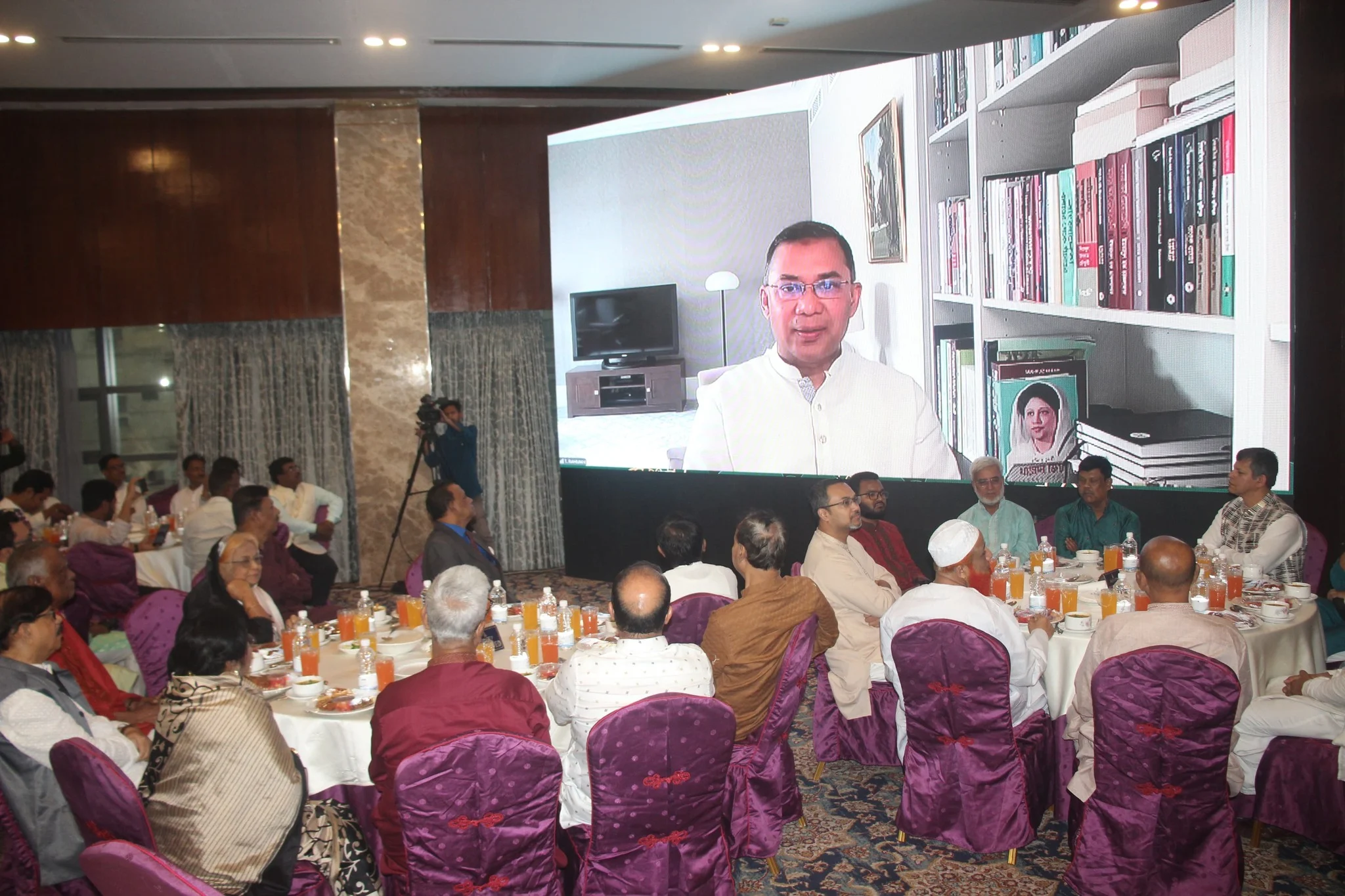
.png)
